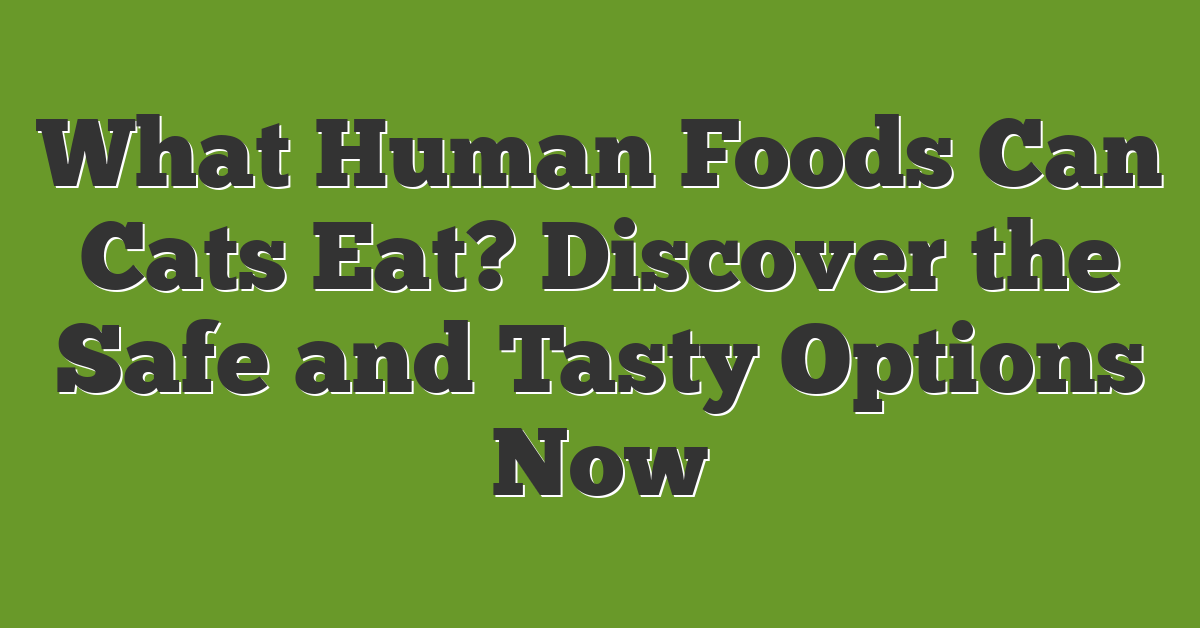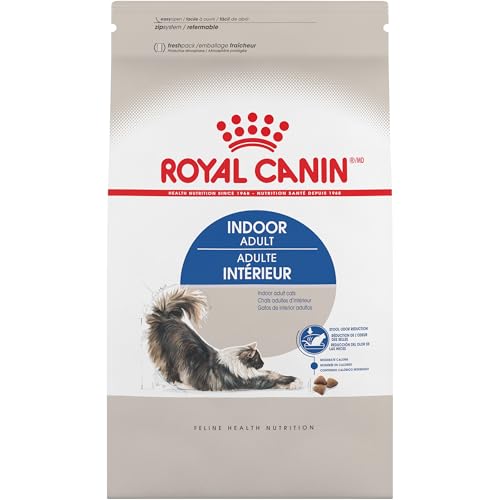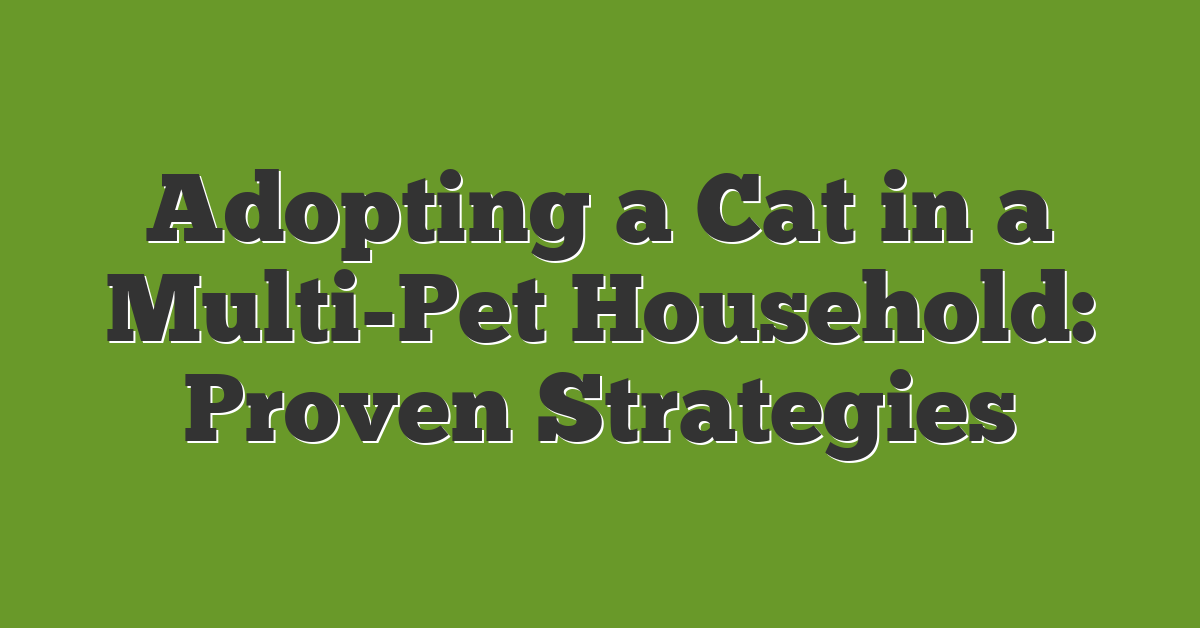Understanding a cat’s dietary needs
Cats have unique dietary requirements that differ from humans or dogs. Understanding these needs is essential to ensure your feline friend stays healthy and happy. Here are some key points to consider:
- Carnivorous nature: Cats are obligate carnivores, which means they require a diet primarily focused on meat. Unlike humans, cats lack the necessary enzymes to digest plant-based proteins efficiently. Their bodies are designed for the consumption of animal protein.
- Protein is vital: A cat’s diet should contain high-quality animal protein to meet its nutritional needs. Protein is essential for building and repairing tissues, maintaining a healthy immune system, and providing energy. Choose cat food that lists real meat as the primary ingredient.
- Taurine is a must: Taurine is an amino acid that is crucial for a cat’s overall health, particularly their heart and eyes. Unlike other animals, cats cannot produce enough taurine on their own and must obtain it from their diet. Commercial cat food is usually fortified with taurine, but it’s important to check the label to ensure it’s included.
- Fat for energy: Cats require a moderate amount of healthy fats in their diet. Fats provide energy, help with the absorption of fat-soluble vitamins, and contribute to a lustrous coat. However, it’s important to choose foods that contain the right balance of omega-3 and omega-6 fatty acids for optimal health.
- Water intake: Cats have a low thirst drive and are prone to dehydration. Ensure your cat has access to fresh, clean water at all times. Wet cat food can also be beneficial, as it provides additional hydration.
- Avoid toxic foods: Some human foods can be toxic to cats and should be strictly avoided. These include chocolate, onions, garlic, grapes, raisins, caffeine, alcohol, and anything containing artificial sweeteners like xylitol. Always consult your vet if you’re unsure whether a particular food is safe for your cat.
Remember, every cat is unique, and their dietary needs can vary. It’s essential to consult with your veterinarian about the best diet for your specific cat. Providing a balanced and appropriate diet will go a long way in ensuring your feline companion’s health and well-being.
- [American Veterinary Medical Association](https://www.avma.org/resources/pet-owners/petcare/feeding-your
Human foods that are safe for cats
When it comes to feeding your feline friend, it’s important to stick to their specific dietary needs. While cats are obligate carnivores and primarily need meat in their diet, there are some human foods that can be safely given to them. Remember, moderation is key!
Here are some human foods that are safe for cats to consume:
- Cooked Chicken or Turkey: Cats can benefit from lean, cooked poultry as an occasional treat. Just make sure to remove any bones, skin, and seasonings before offering it to them.
- Fish: A small amount of cooked fish, such as salmon or tuna, can be a tasty and nutritious addition to your cat’s diet. However, avoid feeding them raw fish as it may contain harmful bacteria.
- Eggs: Cooked eggs can provide a good source of protein for your cat. Scrambled, boiled, or poached eggs are all safe options. Remember to cook them thoroughly and avoid using any oil or seasoning.
- Plain Yogurt: Plain, unsweetened yogurt can be a healthy treat for cats. It contains beneficial probiotics that can aid in digestion. Just make sure there are no added sugars or artificial sweeteners.
- Pumpkin: This autumn favorite can be beneficial for cats, especially if they’re experiencing digestive issues. Just offer a small amount of plain, cooked pumpkin (not pumpkin pie filling) as a dietary supplement.
- Blueberries: These tiny fruits are packed with antioxidants and can be a safe, occasional treat for your cat. Just ensure they are fresh and washed properly before offering them.
Remember, feeding your cat should always be done in moderation and should never replace their regular cat food. It’s crucial to consult with your veterinarian before introducing any new foods into your feline’s diet to ensure their overall health and well-being.
Now that you know some safe human foods for your cat, you can treat them in a way that keeps them healthy and happy! Always remember to prioritize their specific dietary needs and consult with your veterinarian for personalized advice. Keep your furry friend’s well-being at the forefront, and you’ll create a purrfect balance in their diet.
1. Cooked chicken
When it comes to feeding your beloved feline friend, you may wonder which human foods are safe for cats to eat. One popular option is cooked chicken. As a cat lover and expert, I’m here to tell you that it can be a healthy addition to your cat’s diet. Here are a few things to keep in mind:
- Cooked chicken is a great source of lean protein, which is essential for your cat’s overall health. Protein helps in building and repairing tissues, maintaining a healthy immune system, and providing much-needed energy.
- When preparing chicken for your cat, it’s important to remove the skin, bones, and any seasonings or sauces. These can be harmful to your feline friend. Stick to plain, boneless, and skinless chicken.
- You can cook the chicken by baking, boiling, or grilling it. Just make sure it’s thoroughly cooked to eliminate any risk of bacterial contamination. Cats are more susceptible to bacteria such as salmonella, so it’s crucial to ensure their safety.
- Once the chicken is cooked, let it cool down completely before serving it to your cat. You can shred the chicken into small, bite-sized pieces that are easy for your feline friend to chew and digest.
- Remember, moderation is key! While cooked chicken can be a healthy treat for your cat, it should not make up the majority of their diet. A well-balanced cat food, specially formulated for their nutritional needs, should always be the main source of their meals.
- If you’re unsure about adding cooked chicken to your cat’s diet, it’s best to consult with a veterinarian. They can provide personalized advice based on your cat’s specific needs and health condition.
Now that you know the benefits and precautions of feeding your cat cooked chicken, you can treat them to this tasty and nutritious option. Just remember to prioritize their overall diet and consult with a professional to ensure their well-being.
2. Salmon
Salmon is another human food that some cats can enjoy. As a cat lover, you might be wondering if it’s safe to share your salmon dinner with your feline friend. Well, the good news is that cooked salmon is generally safe for cats to eat in moderation.
Salmon is not only delicious, but it’s also packed with Omega-3 fatty acids, which are essential for a healthy coat and skin for your furry friend. These fatty acids also support brain function, joint health, and can even boost their immune system. Isn’t that amazing?
If you decide to share some salmon with your cat, keep a few things in mind. First, make sure it’s cooked thoroughly and without any added seasoning or spices. Cats don’t need the extra flavors and some can even be harmful to them.
Also, remove the skin and bones before serving. The skin can be high in fat and may upset your cat’s stomach. And the bones, as you know, can cause choking hazards or even internal injuries.
Another tip is to break the salmon into small, bite-sized pieces. This makes it easier for your furry friend to chew and swallow. Plus, it’s more enjoyable for them to eat it this way.
Remember, while salmon can be a tasty treat for your cat, it should never replace their regular cat food. A well-balanced diet that is specifically formulated for cats is always the best choice. If you have any concerns or questions about including salmon in your cat’s diet, it’s always a good idea to consult with your veterinarian. They can provide personalized advice and guidance based on your cat’s unique needs.
3. Pumpkin
Pumpkin is not only a popular ingredient in human dishes, but it can also be a great addition to your cat’s diet. Here’s why:
- Digestive Health: Pumpkin is packed with fiber, which can help regulate your cat’s digestion. It can help with both constipation and diarrhea, promoting a healthy digestive system.
- Hydration: With its high water content, pumpkin can provide some extra hydration for your cat. This is especially useful if your cat doesn’t drink enough water or if they’re on a dry food diet.
- Weight Management: If your cat needs to shed a few pounds, incorporating pumpkin into their diet can be beneficial. The fiber in pumpkin can help your cat feel full without adding extra calories.
- Nutritional Boost: Pumpkin is rich in vitamins A, C, and E, as well as potassium and iron. These nutrients can support your cat’s overall health and well-being.
When offering pumpkin to your cat, make sure to follow these guidelines:
- Plain and Pure: Use plain, cooked pumpkin without any added sugars, spices, or flavorings. Canned pumpkin (not pumpkin pie filling!) works well.
- Serving Size: Start with a small amount, about a teaspoon or two, and gradually increase the portion if your cat enjoys it. Too much pumpkin can cause digestive upset.
- Mix It Up: You can mix pumpkin into your cat’s regular food or serve it as a standalone treat.
Remember, pumpkin should never replace your cat’s regular cat food. It should only be used as a supplement or treat.
If you’re unsure whether pumpkin is suitable for your cat or if you have any concerns about their diet, it’s always a good idea to consult with your veterinarian. They can provide personalized advice based on your cat’s specific needs.
4. Blueberries
If you’re wondering what human foods can cats eat, you’ll be pleased to know that blueberries are on the list! These little berries are not only delicious but also a healthy treat for your feline friend. As a cat lover, you want the best for your furry companion, and incorporating blueberries into their diet can provide some great benefits.
- Rich in Antioxidants: Blueberries are packed with antioxidants, which help to combat harmful free radicals in your cat’s body. These antioxidants can contribute to your cat’s overall health and well-being.
- Supports Healthy Brain Function: Blueberries are believed to have cognitive benefits and may support healthy brain function in cats. As a cat enthusiast, you know that mental stimulation is important for your furry friend’s mental acuity and cognitive abilities.
- Helps with Digestion: Blueberries are a good source of dietary fiber, which aids in digestion. If your cat occasionally suffers from digestive issues, incorporating blueberries into their diet can provide some relief.
- Promotes a Healthy Urinary System: Blueberries have been found to promote a healthy urinary system in cats. As a cat expert, you understand the importance of maintaining proper urinary health, as urinary tract issues can be a common problem in felines.
Now that you know the benefits, it’s important to introduce blueberries into your cat’s diet in the right way:
- Choose Fresh Blueberries: Opt for fresh, organic blueberries whenever possible.
- Wash Thoroughly: Rinse the blueberries well to remove any pesticides or dirt.
- Remove Stems: Remove the stems from the blueberries before serving them to your cat.
- Serve in Moderation: Remember that moderation is key. Treat blueberries as an occasional snack, not as a replacement for their regular cat food.
As a responsible cat owner, always consult with your veterinarian before introducing new foods into your cat’s diet. They can provide personalized advice based on your cat’s specific needs. So go ahead, give your cat a tasty and nutritious treat with some juicy blueberries!
5. Carrots
Carrots are not only a crunchy and delicious snack for you, but they can also be a healthy treat for your furry friend. Here’s why you should consider incorporating carrots into your cat’s diet:
- Rich in Vitamins – Carrots are packed with essential vitamins like A, B, and C, which are important for maintaining a healthy immune system in cats. These vitamins can help support your cat’s overall health and well-being.
- Promotes Good Digestion – The high fiber content in carrots can help regulate your cat’s digestive system. Adding a small amount of finely grated carrots to their food can help prevent constipation and improve digestion.
- Aids in Oral Health – Chewing on carrots can help with your cat’s dental hygiene by promoting healthy gums and reducing plaque buildup. The crunchy texture of carrots can act as a natural toothbrush for your feline friend.
- Low in Calories – If your cat needs to shed a few pounds, carrots can be a great low-calorie option for them. They provide a satisfying crunch without adding unnecessary calories to their diet.
- Variety in Diet – Cats enjoy having variety in their meals, and carrots can be a great addition to their food rotation. Just like humans, cats can get bored with the same food every day, so adding some carrots into their diet can make mealtime more exciting for them.
When incorporating carrots into your cat’s diet, keep the following in mind:
- Moderation is Key – Carrots should be given to your cat as an occasional treat, not as a substitute for their regular cat food. Too many carrots can upset their stomach or cause an imbalance in their diet.
- Prepare Them Properly – Before offering carrots to your cat, make sure to peel and wash them thoroughly to remove any dirt or pesticides. Cut them into small, bite-sized pieces to ensure easy digestion.
- Consult Your Veterinarian – Before introducing any new food into your cat’s diet, it’s always a good idea to consult with your veterinarian. They can provide personalized advice and ensure that it’s safe for your cat to enjoy carrots.
Human foods that are toxic to cats
As a cat lover, it’s important to know which human foods are safe for your feline friend to eat, but it’s equally crucial to understand that some foods can be toxic to cats. While we may be tempted to share our meals with our furry companions, certain foods can actually harm them. Here are a few human foods that you should never give to your cat:
1. Onions and Garlic
Onions and garlic, whether cooked, raw, or powdered, contain compounds that can damage a cat’s red blood cells. This can lead to anemia or even life-threatening conditions. So, it’s best to keep these ingredients away from your fluffy friend.
2. Chocolate
Chocolate may be a delicious treat for us, but for cats, it can be highly toxic. Chocolate contains theobromine, a substance that cats cannot metabolize properly. Eating chocolate can cause heart problems, tremors, seizures, and even death. So, resist the urge to share that chocolate bar with your feline companion.
3. Grapes and Raisins
Although grapes and raisins may seem harmless to us, they can cause kidney failure in cats. It doesn’t take a large amount to have a negative effect, so it’s better to be safe than sorry and keep these snacks out of your cat’s reach.
4. Alcohol
Alcohol can have devastating effects on cats. Even a small amount can cause serious damage to their liver and brain. Keep your cat away from any alcoholic beverages, as they are best suited for human consumption only.
5. Caffeine
Caffeine is found in coffee, tea, energy drinks, and certain medications. It can be lethal to cats, as their bodies cannot metabolize it effectively. Avoid exposing your cat to caffeine to prevent symptoms such as rapid breathing, heart palpitations, and even seizures.
Remember, it’s always better to be safe than sorry when it comes to your cat’s health. If you suspect that your cat has ingested any toxic food, contact your veterinarian immediately. They will be able to provide the necessary guidance and treatment to keep your furry friend healthy and happy.
Conclusion
Now you have a better understanding of what human foods are safe for your furry friend, and which ones to avoid. Incorporating certain foods like carrots into your cat’s diet can provide them with essential nutrients and promote overall health. However, it’s crucial to keep toxic foods such as onions, garlic, chocolate, grapes, raisins, alcohol, and caffeine far away from your cat. These foods can cause serious health issues and should be avoided at all costs.
Remember, if your cat accidentally ingests any toxic food, it’s important to contact your veterinarian immediately. They will be able to provide the necessary guidance and treatment to ensure your cat’s well-being. By being mindful of what you feed your cat, you can help them lead a happy and healthy life.
So, next time you’re enjoying a meal, make sure to keep your cat’s safety in mind. With a little knowledge and care, you can ensure that your furry friend stays healthy and content.
Frequently Asked Questions
Q: Can cats eat carrots?
A: Yes, cats can eat carrots. Carrots are low in calories and high in fiber, vitamin A, and antioxidants, which can benefit a cat’s digestion, coat health, and immune system. However, carrots should always be cooked or mashed to make them easier for cats to digest.
Q: Which human foods are toxic to cats?
A: Some human foods that are toxic to cats include onions, garlic, chocolate, grapes, raisins, alcohol, and caffeine. These foods can cause various health issues in cats, such as digestive upset, anemia, kidney failure, and even death. It’s crucial to keep these foods out of reach and contact a veterinarian immediately if a cat ingests any of them.
Q: What should I do if my cat has eaten something toxic?
A: If your cat has ingested a toxic food, it’s vital to act quickly. Contact your veterinarian immediately, providing them with all the necessary information, such as the type and amount of food eaten, the time of ingestion, and any visible symptoms. Follow their instructions for further assessment and treatment, as prompt action can help minimize potential health risks.

















